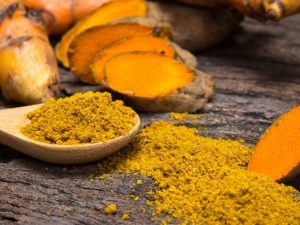- Home
- Editorial
- News
- Practice Guidelines
- Anesthesiology Guidelines
- Cancer Guidelines
- Cardiac Sciences Guidelines
- Critical Care Guidelines
- Dentistry Guidelines
- Dermatology Guidelines
- Diabetes and Endo Guidelines
- Diagnostics Guidelines
- ENT Guidelines
- Featured Practice Guidelines
- Gastroenterology Guidelines
- Geriatrics Guidelines
- Medicine Guidelines
- Nephrology Guidelines
- Neurosciences Guidelines
- Obs and Gynae Guidelines
- Ophthalmology Guidelines
- Orthopaedics Guidelines
- Paediatrics Guidelines
- Psychiatry Guidelines
- Pulmonology Guidelines
- Radiology Guidelines
- Surgery Guidelines
- Urology Guidelines
A case of hepatitis induced by turmeric supplement

Intake of turmeric supplements may cause drug-induced autoimmune hepatitis, according to a case reported by Dr. Ashley L Lukefahr and colleagues and published in the BMJ Case Reports.
The case describes a 71-year-old woman taking turmeric dietary supplements for the maintenance of cardiovascular health, which resolved rapidly following discontinuation of the turmeric supplements.
Of particular note, turmeric use was not documented in the patient’s medical records and the potential causative role of the turmeric supplementation was ultimately identified by the patient rather than the healthcare providers. Therefore doctors weren't aware that she was taking it, and the case emphasizes the need for doctors and patients to communicate about the supplements that patients are taking.
Read Also: Eye drops with Turmeric-derivative may be new treatment of glaucoma
The active ingredient of turmeric is curcumin which has been thought to have many medicinal properties such as anti-inflammatory, antioxidants, neuroprotective and much more but more research is needed on its benefits, according to the National Institutes of Health (NIH).
The patient read a news story which covered a study on animals that said turmeric may help prevent stroke. She started taking the supplements along with 20 other medicines and supplements she was already taking. After eight months, a blood test determined she had elevated levels of liver enzymes, which indicated a liver problem. Further tests revealed the woman had a condition called autoimmune hepatitis, in which the body's immune system attacks the liver, causing inflammation and liver damage.
After her diagnosis, the woman was monitored closely without receiving specific treatment. But three months later, she told her doctor she had stopped taking turmeric after she read on the internet about a possible link to liver problems.
For the first time, the woman had told her doctors about the turmeric supplement. The women proved right for her this time. After she stopped taking the turmeric supplement, the doctors noticed a rapid decrease in her levels of liver enzymes.
Read Also: Turmeric may help fight drug-resistant tuberculosis
In about 10 to 15 per cent of people with autoimmune hepatitis, the condition is triggered by drugs or supplements. Such cases are called drug-induced autoimmune hepatitis. The mechanism behind the drug-induced autoimmune hepatitis is unclear but it is thought that in some cases, the breakdown of drugs may lead to the formation of molecules that trigger an immune reaction, according to the NIH.
The authors are still not clear whether turmeric compounds were indeed responsible for the liver problems in the woman's case. A sample of the product was not available to test, but it could be that contaminants in the product, rather than the turmeric itself, triggered the condition, the report said. One of the other probable reasons may be that the combination of turmeric and other medicines and supplements that the woman was taking caused autoimmune hepatitis.
The NIH recommends that patients should tell their healthcare providers about which dietary supplements they are taking so that they can discuss what is best for the patients' overall health.
For reference log on to http://casereports.bmj.com/content/2018/bcr-2018-224611.abstract?sid=cd1e37cb-f2d1-4f7c-bd2d-454650ba8874

Disclaimer: This site is primarily intended for healthcare professionals. Any content/information on this website does not replace the advice of medical and/or health professionals and should not be construed as medical/diagnostic advice/endorsement or prescription. Use of this site is subject to our terms of use, privacy policy, advertisement policy. © 2020 Minerva Medical Treatment Pvt Ltd